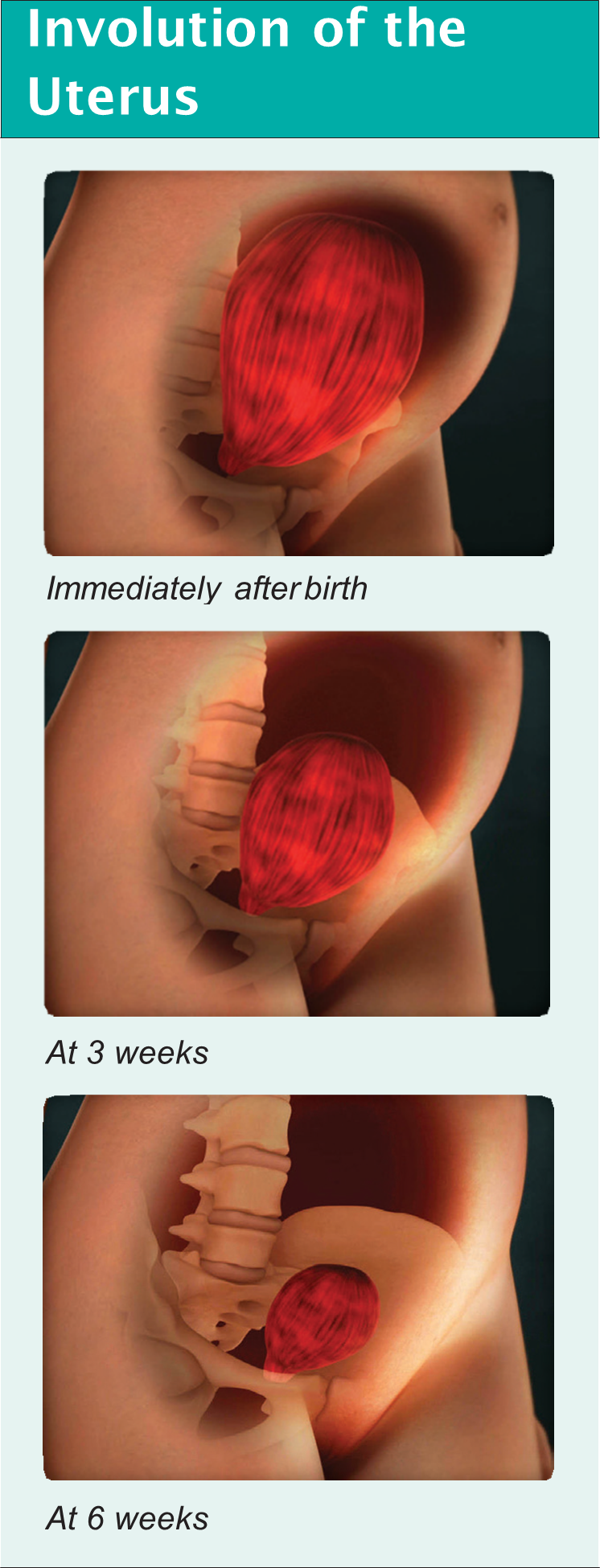Involution
- This is when your uterus starts to get smaller—it continues to shrink for about six weeks until it reaches its original size
- During involution, you might feel mild to moderate contractions called “afterpains”
Vaginal bleeding
- This is called lochia, and it occurs when the uterus sheds tissue and blood after birth
- Bleeding is heaviest after birth and then slows down
- Wear pads instead of tampons to reduce your risk of infection
Soreness in the Pelvic Floor
You will have some soreness in your perineum (the area between your vagina and anus) and your pelvic floor.
How to ease soreness:
- Use ice packs in the first 24 hours
- Run warm water over the area while you shower
- Take a warm bath or use a plastic sitz tub
- Use witch hazel pads or a numbing spray
How Can I Take Care of Myself at Home?
- Eat healthy foods and drink plenty of water
- Exercise when you feel up to it
- Get out with your baby for fresh air
- Schedule some time for yourself
- Sleep when your baby sleeps
- Ask for help

Call Your Healthcare Provider
Postpartum Warning Signs
Postpartum Warning Signs
- A fever of 100.4°F (38°C) or higher
- Foul-smelling vaginal discharge
- Increased uterine pain
- Heavy bleeding or passing clots larger than a ping-pong ball
- Pain or burning with urination
- Lump, hard area, redness, or pain in your breast
- Red, tender, or painful area on your leg
- Swelling of the face and limbs
Support Partner Checklist
- Hold your baby skin to skin on your chest
- Eat well and exercise
- Sleep or rest when the baby sleeps
- Take an Infant CPR/First Aid class
- Find other new parents you can reach out to
- Pay attention to your emotions—you can get depressed too
- Go to well-baby checkups
Perinatal Mood & Anxiety Disorders (PMADs)
15-20% of expectant and new moms experience mood disorders such as depression and anxiety.
Signs include:
- Crying or sadness that doesn’t go away
- Irritability and anger
- Difficulty bonding with your baby
- Feeling anxious or panicky
- Problems with eating or sleeping
- Feeling out of control
- Having upsetting thoughts that you can’t get rid of
- Feeling that you might hurt yourself or your baby
If you experience any of these signs or your partner notices them, contact your healthcare provider. PMADs are not your fault—they are caused by a chemical imbalance in the brain and are very treatable if you get help early on.
Download and Print
© 2017 InJoy Productions, Inc. All rights reserved.